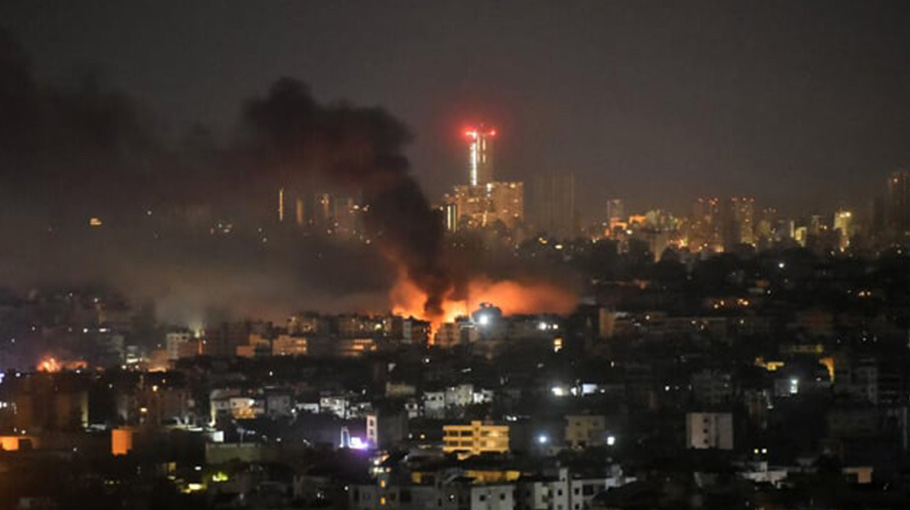Israeli strikes kill over 40 in east Lebanon

At least 40 people were killed in Israeli air strikes in eastern Lebanon on Wednesday, according to the Lebanese health ministry.
The Israeli military said the strikes, in the governorates of Baalbek and Bekaa, hit operatives and infrastructure of the Iran-backed armed group Hezbollah.
Lebanon's culture minister said one of the strikes seriously damaged an Ottoman-era building in the vicinity of the Roman ruins in the city of Baalbek, which is a Unesco World Heritage site.
Strikes also hit the southern suburbs of Beirut on Wednesday, after the Israeli military issued new evacuation warnings. The military said it struck Hezbollah command centres, weapons stores and other infrastructure.
A later military warning covered four neighbourhoods in southern Beirut including an area near Lebanon's only commercial airport, which has continued to operate during the war between Israel and Hezbollah.
Soon afterwards, pictures showed a large fireball and thick black smoke rising into the night sky above Beirut.
Meanwhile, a rocket fired by Hezbollah fighters from Lebanon killed an Israeli man near a kibbutz in northern Israel, paramedics said.
On Wednesday morning, Lebanon's Civil Defence agency said the bodies of 30 people had been recovered from a four-storey apartment building that was hit by an Israeli strike the previous evening.
The building in Barja, a predominantly Sunni Muslim coastal town south of Beirut that is outside Hezbollah's traditional strongholds, was reportedly housing displaced people.
The Israeli military said it had struck "terror infrastructure” belonging to Hezbollah.
A man who lived on one of the upper floors of the apartment building said his son and wife were injured by falling masonry.
"These rocks that you see here weigh 100kg, they fell on a 13kg kid," Moussa Zahran told Reuters news agency as he surveyed the damage.
“I removed [the rocks] and... handed my son to the civil defence through the window. I carried my wife and came downstairs and got out behind the building... I thank God, glory be to Him, for this miracle.”
An Irish Times correspondent cited a member of the civil defence at the scene as saying that those killed whose bodies were found complete included seven women and three children - a seven-month-old baby and two girls aged seven and 12.
Neighbours also said the building was housing displaced people who had fled from other areas, she added.
There was no evacuation warning ahead of the strike, according to Reuters.
The Lebanese health ministry gave a preliminary death toll of 20 from the strike on Barja late on Tuesday but did not provide an updated figure on Wednesday.
On Wednesday evening, the ministry said 40 people had been killed and 53 others injured in a series of Israeli strikes in Bekaa and Baalbek governorates, which make up most of the eastern Bekaa Valley. They included 16 people killed in the village of Nasriyah and 11 in Baalbek city, it added.
Lebanese Culture Minister Mohammad Mortada also told the director-general of Unesco that one of the strikes had "caused serious damage to the ancient Manshiya building" in Baalbek city, which he said dated back to the Ottoman period and was located in the vicinity of the ruins of several Roman temples.
"The destruction of this exceptional monument next to a Unesco World Heritage site is an irremediable loss for Lebanon and for world heritage," he warned.
An AFP news agency correspondent also reported that the famous 19th Century Palmyra Hotel near the Roman ruins was damaged by nearby strikes, which the health ministry said killed two people.
On Thursday morning, the Israeli military put out a statement saying it had killed approximately 60 Hezbollah fighters in strikes on about 20 "terror targets" in the area of Baalbek and north of the Litani river, about 30km (20 miles) north of the border with Israel.
Dozens of other strikes targeted a rocket launcher, weapons storage facilities and other infrastructure, it added.




